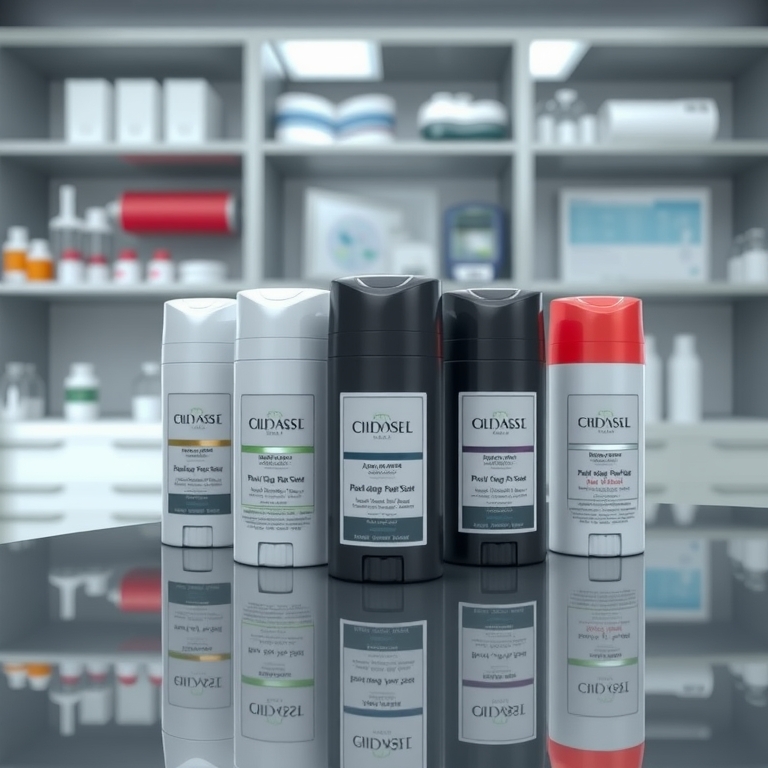In an unexpected turn of events that has sent ripples through the personal care industry, the U.S. Food and Drug Administration (FDA) has issued a sweeping recall of several popular deodorant brands, citing concerns over the presence of harmful chemicals. This move comes as part of an ongoing investigation into personal hygiene products that may pose health risks to consumers. The recall marks a significant moment in the regulatory oversight of personal care products, highlighting the delicate balance between consumer safety and corporate responsibility.
The FDA’s decision to recall these products underscores the growing scrutiny over chemical ingredients used in everyday consumer goods. At the heart of the controversy is the discovery of potentially carcinogenic compounds found in certain deodorant formulations. While consumers have long trusted these household names for their efficacy and safety, recent findings have raised significant alarm. This action by the FDA is not merely a precautionary measure but a decisive step aimed at safeguarding public health.
The chemicals in question are part of a class known as volatile organic compounds (VOCs), which have been linked in various studies to adverse health effects, including respiratory issues and cancer. The FDA’s investigation was prompted by independent research that identified the presence of these compounds at levels exceeding recommended safety limits. The agency, in collaboration with several scientific bodies, has been conducting extensive tests to confirm these findings. In a detailed report, the FDA outlined the specific chemical agents that have been identified as potentially harmful, prompting the immediate recall.
For companies affected by the recall, the implications are profound. The brands involved, many of which are industry leaders with significant market shares, now face the dual challenge of addressing consumer concerns while navigating the logistical and financial impacts of the recall. Rebuilding trust with consumers will be paramount, as is the need to reassess and potentially reformulate their products to comply with safety standards. Corporate spokespeople have been quick to assure the public that they are taking swift action to address the issue, with some companies already initiating efforts to reformulate their products with safer ingredients.
The recall has also reignited the ongoing debate about the regulation of personal care products in the United States. Unlike pharmaceuticals, which are subject to rigorous testing and approval processes, personal care products have historically been subject to less stringent oversight. This discrepancy has led to calls from consumer advocacy groups for more robust regulatory frameworks to ensure that all products on the market are safe for use. There is a growing consensus that the existing regulatory mechanisms need to be reevaluated and strengthened to prevent similar issues from arising in the future.
From a market perspective, the recall could potentially reshape the competitive landscape of the personal care industry. Smaller brands that emphasize natural and organic ingredients may find this an opportune moment to capture a larger share of the market, as consumers become more discerning about the products they use. Meanwhile, the larger corporations affected by the recall will need to engage in significant public relations efforts to maintain their brand image and customer loyalty.
Consumers, on their part, are urged to remain vigilant and informed. The FDA has provided a comprehensive list of affected products and advises consumers to discontinue use immediately. Retailers are also being instructed to remove the recalled items from their shelves, a process that is likely to be both costly and time-consuming.
The broader implications of this recall extend beyond the immediate concerns of product safety. It serves as a stark reminder of the continuous need for transparency and accountability within the industry. As science and technology advance, providing new insights into the effects of chemical compounds, regulatory bodies and manufacturers alike must adapt to ensure that consumer safety remains a top priority.
In the wake of the recall, the industry as a whole may find itself at a crossroads. The incident could spur innovation, prompting companies to invest in research and development to discover safer alternatives to potentially harmful chemicals. Additionally, it may lead to stronger collaboration between regulatory agencies, scientific communities, and industry leaders to develop more comprehensive safety guidelines.
In conclusion, the FDA’s recall of deodorant brands over harmful chemical concerns is a pivotal moment for the personal care industry. It highlights the critical need for stringent oversight and the importance of consumer safety in product development. As the situation unfolds, it will be crucial for all stakeholders—regulators, companies, and consumers—to work together to ensure that the products on the market are both safe and effective. While the immediate impact of the recall is significant, it also presents an opportunity for positive change, fostering a more transparent and health-conscious industry.

Leave a Reply